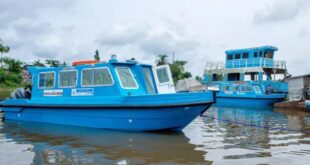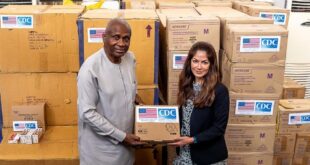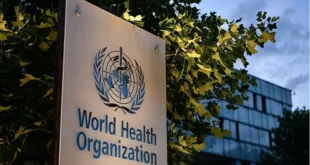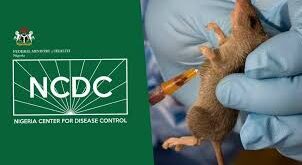By Philip Yatai/Hadiza Mohammed-Aliyu
Vesico Vaginal Fistula (VVF) or Obstetric Fistula, also known as fistula, is a childbirth complication
which leads to abnormal opening between the bladder and the vagina, causing continuous and unremitting urinary incontinence. The condition is among the most distressing complications of gynecologic and obstetric procedures; however, it can be repaired through surgery.
Some common causes of VVF are obstructed or prolonged labour, lack of prompt access to medical care, unsafe obstetric or gynecological surgery, among others.
The condition can cause discomfort, and if left untreated, it may cause serious bacterial infection, which may result to sepsis, a dangerous condition that can lead to low blood pressure, organ damage or even death.
Obstetric Fistula was once common in the world but over the last century, Europe and North America have essentially eradicated the condition through improved care.
It is, therefore, obvious that there are workable policies, programmes and interventions that can be adapted
to the needs of resource-poor countries.
Unfortunately, in many developing countries of Africa and part of Asia, unacceptable high number of cases are still being identified and in Nigeria, recent studies estimate that about 12,000 to 20,000 women and girls are affected each year.
Meanwhile, United Nations had fixed May 23 as International Day to End Obstetric Fistula (IDEOF) to raise awareness about the pains, struggles and stigma faced by women living with the condition and how to find cure.
It is also one of the UN Sustainable Development Goals that VVF be eliminated by 2030, hence the choice of the 2023 theme of the celebration — “20 years on — progress but not enough! Act now to end fistula by 2030!” to accelerate action toward ending the menace.
The story of Rakiya Ibrahim, a 31-year-old VVF survivor is, therefore, one among numerous patients awaiting surgical repair at the VVF Unit of Gambo Sawaba General Hospital, Zaria.
Ibrahim, from Kudan in Kudan Local Government Area of Kaduna State, said she got married at 16, but was divorced for not getting pregnant after 10 years.

Rakiya Ibrahim, 31-year-old VVF survivor
She told a News Agency of Nigeria (NAN) correspondent on special interview marking the 2023 IDEOF at the VVF Unit of the Gambo Sawaba General Hospital, Zaria, that she got married again, became pregnant and delivered at home, but lost the baby. After waiting for five years, she became pregnant again, but the pregnancy came with a lot of problems, saying she was always sick to a point that she could not sit upright.
Like many other VVF survivors, Ibrahim said that when it was time to deliver, the labour lasted for days, adding that she was in and out of hospital because she was in pain.
She said that after several days of labour, it was discovered that the baby had died and had started decaying in her stomach.
She added that her situation became worse after undergoing a surgery to remove the dead baby because at that stage, she could not walk on her own, and nine days later, urine started leaking from her body.
“And that was how I was discharged; I would have to be supported to walk or bend down to urinate; it was terrible.
“My mother was not around but my co-wife and her children stepped in to help. That was how I continued to clean my body every minute as urine pour through my legs without control.
“I was so ashamed that I could not tell anyone. I simply lay in my room and when people came to greet me, I would remain in bed and refuse to stand up.
“I was later taken to the hospital and the doctor told me I will get better, saying he will refer me to Zaria, where I will be treated for free.
“But sadly, my husband’s friends advised him against taking me to the hospital on the grounds that my problem was spiritual and as such required traditional herbs to get better.’’
She said that her husband obliged but the situation did not get better, adding that her mother stepped in and convinced the husband to take her to the VVF Centre at the Gambo Sawaba Hospital in Zaria.
“When my husband brought me to the facility, the Head of the VVF Unit, Hajiya Fatima Umar, took good care of me. I could not walk; I was in pain and the legs were heavy.
“I was crying and unable to eat because I was restless. But Umar assured me that I will get better. She showed me others that are in worse condition but got healed.
“She gave me medications for my leg and now I can walk, and the pains are gone.’’
Ibrahim, who said she had spent two weeks at the centre, added that she had been examined and booked for repair surgery on Tuesday (May 23), a day set aside by the United Nations as World Fistula Day.
She expressed happiness, saying “I cant wait for Tuesday to come to get the surgery done; I believe I will get better by the grace of God.”
The Head of the VVF Unit, Hajiya Fatima Umar, said new patients usually come to the facility with anxiety, depression and fear of the unknown, but relax and remain hopeful after counselling.
She added that “some cannot even walk. They have to be supported because the nerves have been damaged.
“They will be leadking urine and smelling as they pass because they dont even know how to take care of themselves.
“Last week, we operated on 13 patients, and we have about 17 that are waiting. The 17 I am talking about are the ones living in the hospital.
“There are others that make excuses to go home and come back. So, we have over 20 awaiting surgery.’’

Fistula Surgeon, Dr Ado Zakari.
On his part, the Fistula Surgeon, Dr Ado Zakari, who is also a Consultant Public Health Physician, described the number of awaiting patients as a big challenge.
According to him, many doctors are not interested in fistula surgery because most of the patients are from poor families who require free services.
“Unfortunately, we are getting more and more cases everyday. It is a big challenge because many doctors do not have interest in VVF.
“It is a work where obviously there is nothing in it in the sense that even when you learn how to operate, you cannot practice privately.
“This is because many patients are poor and cannot afford to pay for such service in a private health facility.
“Here, we treat them free of charge, as organisations such as the UN Population Fund (UNFPA), Fistula Foundation Nigeria (FFN) and state governments foot the bills.
“Another thing is that even when you want to train more doctors, they are not interested in it.’’
(NANFeatures)
Subscribe to the Advocate News letter and receive news updates daily in your inbox.
 Advocate.ng Latest news update on politics, entertainment, sport and more
Advocate.ng Latest news update on politics, entertainment, sport and more




